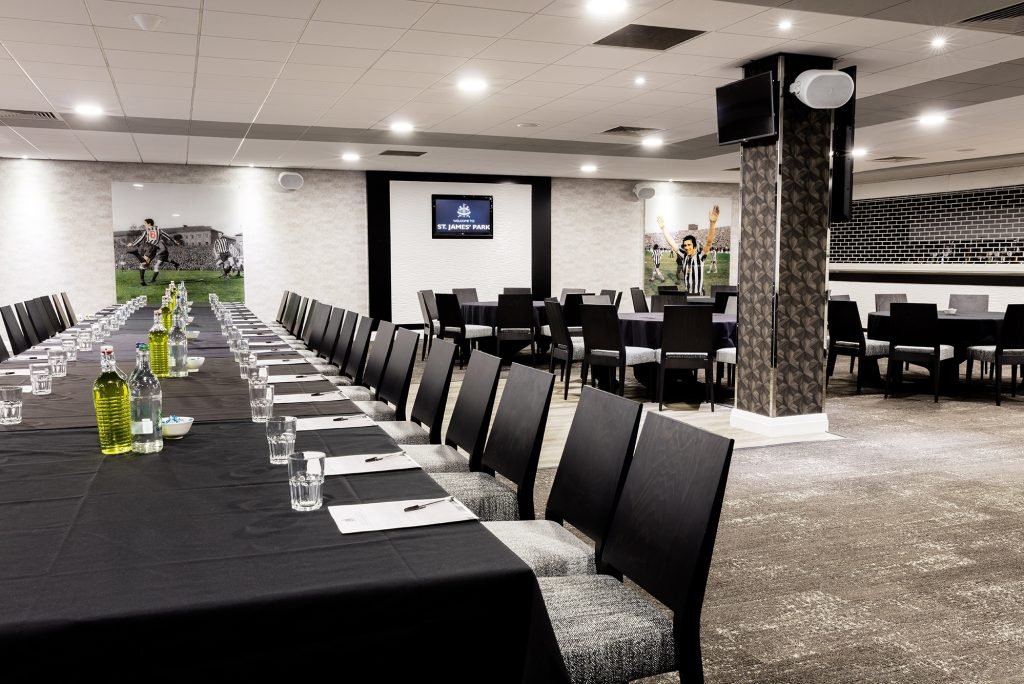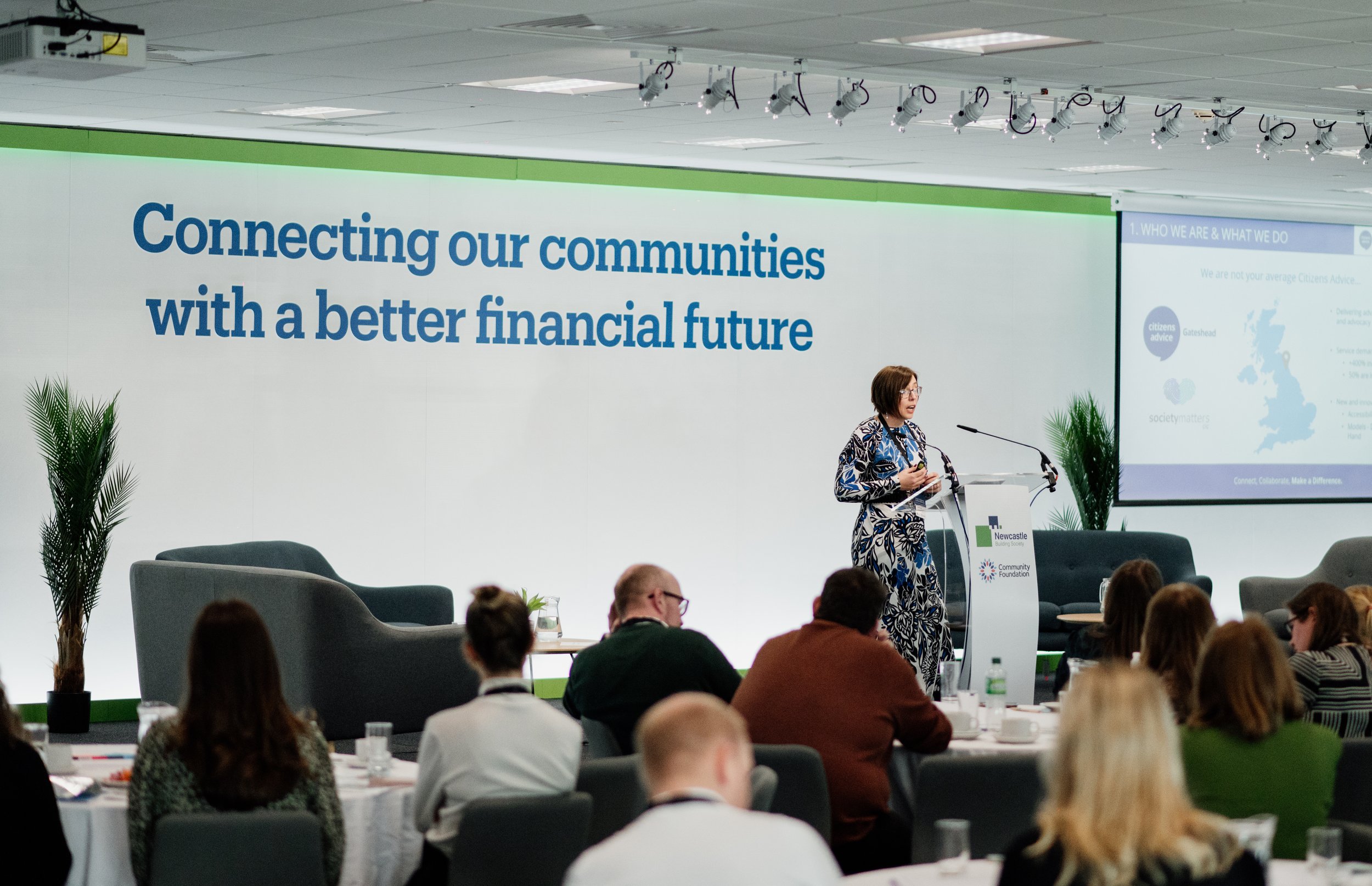Welcome to the first edition of the brand new This is the North podcast newsletter.
The Hidden Hunger: How School Breakfast Clubs Revealed Britain's Food Crisis
by Alison Dunn, with insights from Professor Greta Defeyter OBE
It started with a piece of toast stuffed into a schoolboy's pocket.
Professor Greta Defeyter OBE, from Northumbria University, originally focused on researching children's cognitive development. One day she watched as a young boy methodically filled his backpack and pockets with breakfast club leftovers. When asked why, his answer would reshape her entire research career:
“I’m taking it home because my Mam’s at work and there’s nothing for tea for me and my baby sister.”
This moment in 2003 - a child ensuring his and his sister’s next meal in a country that prides itself on social welfare - exposed the early indications of a brewing crisis that has only deepened in the decades since. Today, in the North East of England alone, one in five children live in household food insecurity, a conservative estimate that probably masks an even grimmer reality.
The Human Cost of Hunger: The False Economy of Current Solutions
The journey to understanding Britain's food crisis is deeply personal for Greta. In the mid-1980s, she arrived back in the UK as a single mother with a mixed-race son with special needs, carrying just 16 pence and a pair of hiking boots to her name.
Her salvation came through her mother - a "four-foot-two pocket rocket" who had worked in ammunition factories during World War II and possessed an unshakeable belief in education as the path forward. This background gives Greta a unique perspective on today's crisis.
“When you’re hungry - not just a little peckish, but truly hungry - it’s impossible to concentrate on anything. Add to that the constant fear of not knowing where your next meal will come from, and you begin to understand the devastating impact that food insecurity has on a child’s physical, educational and emotional development.”
The Normalisation of Crisis
What's perhaps most alarming isn't just the scale of food insecurity in the UK but how it has become normalised. When Greta first encountered the wee boy with toast in his pockets, such stories shocked people. Today, teachers matter-of-factly report children making "soup" from stolen ketchup packets when there's nothing to eat at home.
"We've accepted schools as the third state," Greta observes, "expecting them to feed children, provide benefits advice, help with laundry, and supply uniforms. We need to ask ourselves: Are we truly addressing the fundamental root causes of poverty and associated food insecurity?"
Consider these startling figures:
£88 million in unused free school meal allowances disappears annually.
£28 million in additional funding remains unclaimed in the North East alone.
The free school meal threshold sits at just £7,400 per year after housing costs, so many families are living in poverty but not entitled to free school meals.
A growing divide in free school meals between the South and the North East.
The current system's inefficiencies extend beyond numbers.
Schools charging £1.10 for water bottles despite government mandates for free water provision.
Free school meal credits that vanish if unused rather than rolling over.
School Food is viewed as separate programmes rather than through the eyes of the child.
Siloed Government Departments making initiatives such as a National auto-registration process for Free School Meals is cumbersome.
Lack of investment in kitchen infrastructure and funding not meeting the real cost of school dinners.
A shortage of school cooks.
These aren't just administrative oversights—they're symptoms of a system that often compounds the very problems it aims to solve.
Beyond Food Banks: Reimagining Solutions
The path forward requires both immediate interventions and systemic change, and several promising initiatives are already showing results. Take Feeding Britain's network of affordable food hubs - a pioneering alternative to traditional food banks. These social supermarkets and pantries operate on a cooperative model where members pay a nominal fee and receive significantly more value in nutritious food. With over 300 such clubs nationwide, they're demonstrating how dignified food access can work in practice. I am not suggesting that these clubs are the whole answer to poverty and food insecurity, but they are, under the current circumstances, a step in the right direction.
“The money from membership [to the food hubs] allows these hubs to purchase healthier, more nutrient-dense food than traditional food banks can typically provide. We’re seeing improved dietary intake and better outcomes for families.”
In schools, innovative approaches are emerging too. Some schools have implemented universal breakfast clubs that avoid stigma by operating in high-need areas but remaining open to all students. Others have adopted biometric payment systems that make free school meal recipients indistinguishable from other students. Although care must be taken to ensure pupils can’t be identified through other means or programmes.
Building on these successes, Greta advocates for broader systemic changes:
1
A National Auto-enrolment programme for free school meals and Healthy Start vouchers - already being piloted by forward-thinking local authorities
2
Universal free school meals for all families on Universal Credit - supported by new research showing the critical importance of nutrition through the first 8,000 days of development.
3
Reform of School Food Standards to address the growing public interest in ultra-processed foods - a focus on local food sources
4
Expansion of affordable food hubs as dignified alternatives to food banks - building on proven cooperative models
5
Strengthening local food systems from farm to fork - particularly crucial given recent global supply chain disruptions
The Cost of Inaction
The implications of food insecurity extend far beyond immediate hunger. Research shows that food insecurity is associated with:
Stunted physical and mental development
Reduced economic productivity
Long-term health issues including obesity and diabetes
Intergenerational cycles of poverty
Poor educational outcomes
A Call for Change
As we witness the normalisation of food banks - now as numerous as McDonald's restaurants across the UK - we must ask ourselves hard questions about the society we're creating. The solutions exist. Auto-enrollment systems could streamline money to schools and families. Universal free school meals could ensure no child or young person goes hungry. Affordable food hubs could provide more dignified solutions, alongside services to maximise household income, thus improving overall dietary intake and health. The real question isn't whether we can afford these solutions - it's whether we can afford not to implement them.
This exploration of food insecurity in Britain emerged from a wider conversation on the This is The North podcast, where Professor Defeyter delves deeper into these interconnected challenges. Her insights reveal how seemingly separate issues—from school food standards to government department data sharing—weave together to create and perpetuate cycles of food insecurity. What becomes clear, both in our discussion and through her decades of research, is that these aren't isolated problems requiring isolated solutions. They demand a comprehensive rethinking of how we approach food security, poverty, and social rights.
For Policymakers:
Champion national auto-registration for free school meals legislation
Support data-sharing initiatives between government departments.
Advocate for universal free school meals for all Universal Credit recipients
Advocate for sustained HAF and HAF Plus funding to provide opportunities to children and young people during the school holidays
Take Action Today
For Community Leaders:
Explore establishing affordable food hubs in your area
Partner with existing social supermarkets and pantries
Connect with Feeding Britain's, and other affordable food clubs, network of successful programs
Advocate for ward-level food insecurity data collection
For Educators and School Leaders:
Check that all school food activities are inclusive and stigma free
Install water fountains and provide reusable water bottles
Allow free school meal credit to rollover for absent students
Review adherence to School Food Standards and ensure the Governing body is aware of these standards
Ensure school food is a standing item on your school’s council
For Concerned Citizens:
Support your local affordable food initiatives
Share these insights with your local councillors and MPs
Challenge stigma around food support in your community
Join the movement for food as a fundamental right
You can hear Professor Defeyter's full interview and explore more systemic challenges facing Northern England on the This is The North podcast here.
Don’t forget to like, share, and subscribe—on Spotify, Apple Podcasts, or wherever you get your podcasts.

Mark your calendar…
Join us 24 March at Newcastle United as Prof. Defeyter and a host of fellow distinguished guests tackle systemic challenges and opportunities for change head-on.
Limited seats - register with us at events@societymattersfoundation.org.uk
This isn't another conference. It's where change begins.

Coming up on the podcast…
In February’s episode of This is the North I’m talking to Michelle Minnikin, psychologist, coach and author of Good Girl Deprogramming, a book which shines a light on the sinister nature, tactics and tricks of coercive control that not only programs us to be Good Girls but to keep us in that mindset for the years, decades and generations that follow. Michelle offers a hard hitting yet humorous look at life for modern day women, encouraging us to unleash the inner rebel in order to bask in fierce, unapologetic glory – yikes, now that’s got to be worth a listen!
Tune in mid-February to listen to this latest episode.
Got an idea for an episode or a guest?
If you have an idea for a This is the North episode or think you know the perfect guest, I’d love to hear from you. Please get in touch.
A deep dive into the archive…
There’s been so much discussion in recent months about what’s going on over the Pond, the systemic and violent take down of DEI policy, the erosion of women’s rights and the ever- tightening control of a few very wealthy men over politics, media and the ordinary folk of the world. This reminded me of an episode of This is the North recorded with the boldly brilliant Grace Blakeley, broadcaster, journalist and author of a fabulously enlightening book entitled Vulture Capitalism.
In her book and, in our discussion on This is the North, Grace takes on the world’s most powerful corporations by showing us how the causes of our modern crisis are the intended result of our capitalist system - not a broken system, something that happened accidentally or because we encountered a perfect storm but an intentional system working exactly as planned, benefitting a tiny few at the expense of the majority.
There’s something almost prophetic in this episode of This is the North, and whilst it was recorded several months ago now I’ve no doubt you’ll recognise the themes playing out in the media right now. Take a listen.

Book me to talk
If you’re interested in issues of social justice and would like me to provide a key note at your next big event please get in touch. On my website you’ll find some example key notes but there’s much more besides, so please do get in touch and let me know which of the This is the North episodes sparked your interest.
I can also talk to your staff members at a team event or as a mentor on issues of inclusive leadership, social justice, social mobility, how engaged employees transform workplace culture and drive success, and much, much more.



